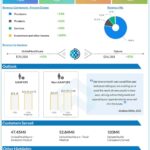
Maksim Labkouski
News that Bristol Myers (NYSE:BMY) intends to pay up to $5.8B for Mirati Therapeutics (NASDAQ:MRTX), including a CVR worth up to $1B, has led to speculation about whether another bidder will emerge and or the CVR will actually be paid.
On Sunday, Bristol Myers announced that it has agreed to buy Mirati for $58 per share in cash, or $4.8B. Each shareholder would also receive a non-tradeable Contingent Value Right for each Mirati share held worth up to $12 in cash, amounting to around $1B. The deal is expected to close during the first half of 2024.
The CVR is payable if the FDA accepts Mirati’s new drug application within seven years after the closing for its drug candidate MRTX1719 for the treatment of non-small cell lung cancer, or NSCLC, the most prevalent form of the disease. The drug, known as a PRMT5-MTA inhibitor, is expected to begin Phase 2 testing during the first half of 2024.
In its announcement, Bristol Myers also cited Mirati’s drug Krazati, also called adagrasib, which is used to treat NSCLC tumors with KRAS G12C mutations, as a key reason for buying the company. Bristol Myers said that around 14% of NSCLC patients have tumors that harbor KRAS G12C mutations and that Krazati has shown promise in treating other cancers as well. Bristol Myers also mentioned the promise of two other KRAS inhibitors in development, MRTX1133 and MRTX0902.
Analysts noted on Monday that Bristol Myers didn’t have any KRAS G12C inhibitors in its pipeline, which should reduce regulatory hurdles to the closing.
Late last week, Jefferies ruled out Novartis (NVS), Roche (OTCQX:RHHBY), Eli Lilly (LLY) and Merck (MRK) as potential suitors for Mirati as they already had KRAS G12C candidates.
“It is possible other buyers could emerge, but based on our price/penetration estimates, we think the current value at $58 per share is fair,” wrote Jefferies in another note on Sunday.
Meanwhile, Leerink said it sees another bidder potentially emerging, calling Bristol Myers’ offer “significantly below what we see as the strategic value of the company.”
JMP said it believes that that Bristol-Myers wasn’t the only drugmaker interested in buying Mirati.
“We believe this was a competitive process and do not rule out that additional potential bidders were involved. We believe Merck or Pfizer (PFE) could also have been well-equipped to extract value out of adagrasib and MRTX1719,” JMP said.
And at least one analyst Monday questioned whether the CVR will ever be paid.
Jones Research said there were “considerable risks and uncertainties with the outcome” of a Phase 2 clinical trial for MRTX1719. “Currently, we are ascribing low probability towards the CVR,” it added.
Jefferies noted that MRTX1719 could face competition from other PRMT5-MTA competitors, including one by Amgen.
“We had thought that a potential suitor may wait to see AMGN data prior to purchasing but likely means BMY is confident in MRTX1719 best-in-class potential,” said Jefferies, estimating drug could have peak sales of $479M in lung cancer by 2032.
Tango Therapeutics (TNGX), which has a partnership with Gilead Sciences (GILD), is also developing PRMT5-MTA drug candidates for cancer. The candidates are in Phase 1/2 testing, according to Tango’s website.
Shares of Mirati rocketed last Thursday following a negative FDA vote on Amgen’s (AMGN) Lumakras, which also treats NSCLC with KRAS G12C mutations, and a Bloomberg report that said Sanofi (SNY) was interested in acquiring Mirati. The stock closed at $60.20 on Friday.
Jefferies said in its Sunday note that it was “unclear” if Thursday’s FDA vote on Lumakras “helped catalyze” Bristol Myers’ decision to acquire Mirati.
Last Thursday afternoon, an FDA advisory committee voted that the results from a key study for Lumakras were unreliable. The vote is significant as Amgen planned to use the study to support full approval of Lumakras, which received accelerated approval in 2021. The FDA is expected to decide on whether to grant full approval for Lumakras by the end of December.
Mirati’s Krazati was granted accelerated approval in December 2022. The company plans to release data from a key Phase 3 study later this month.
Following the FDA vote, some analysts speculated that the FDA may remove Lumakras from the market due questions about its effectiveness, which could create a bigger market opportunity for Krazati. Others, however, said they saw the product staying on the market, potentially winning full FDA approval through another regulatory pathway.








